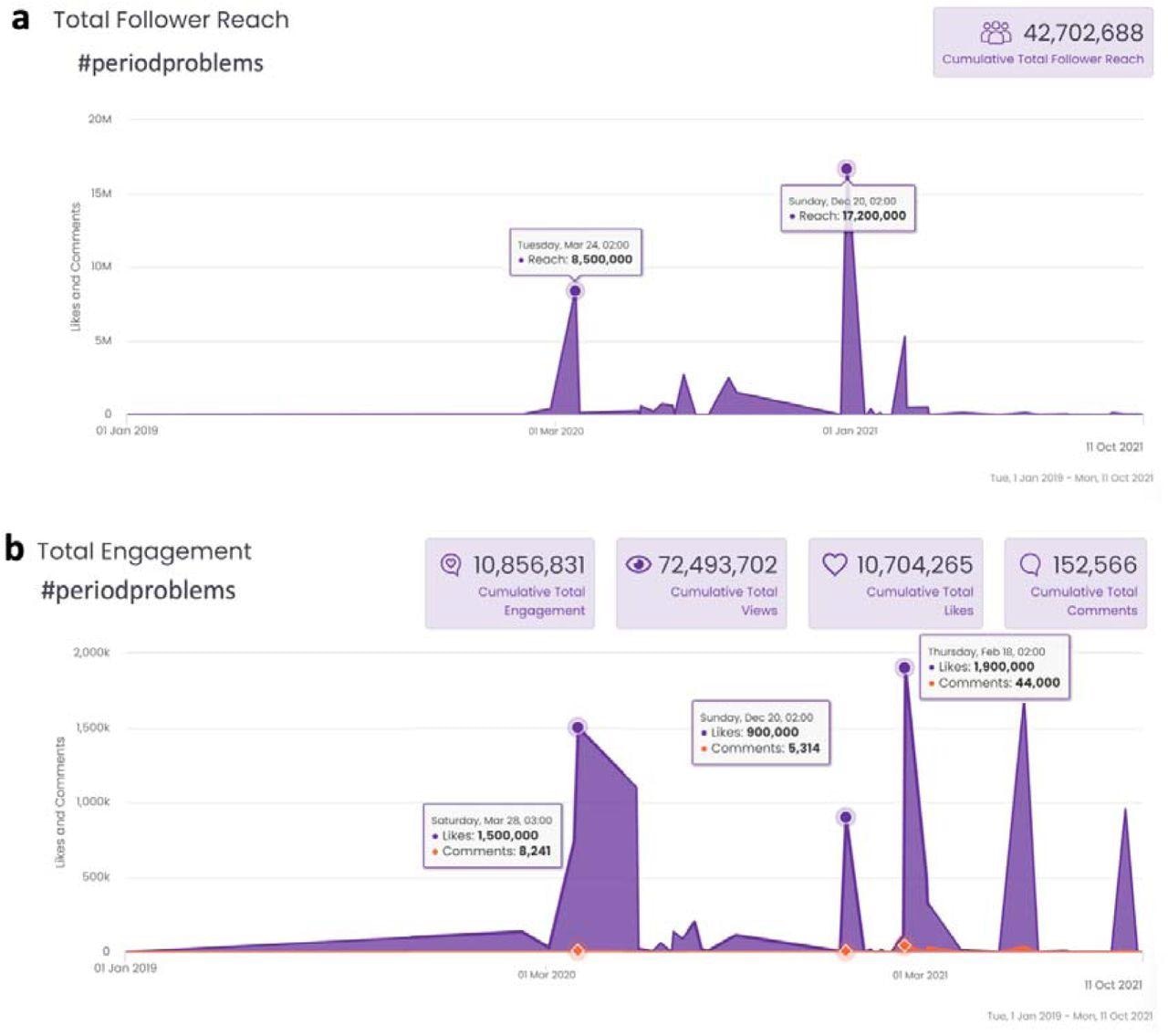
 This news article was a review of a preliminary scientific report that had not undergone peer-review at the time of publication. Since its initial publication, the scientific report has now been peer reviewed and accepted for publication in a Scientific Journal. Links to the preliminary and peer-reviewed reports are available in the Sources section at the bottom of this article. View Sources
This news article was a review of a preliminary scientific report that had not undergone peer-review at the time of publication. Since its initial publication, the scientific report has now been peer reviewed and accepted for publication in a Scientific Journal. Links to the preliminary and peer-reviewed reports are available in the Sources section at the bottom of this article. View Sources
Background
Across the globe, many women have reported an association between COVID-19 vaccination and menstrual irregularities. Concerns in the female population regarding a possible link between COVID-19 vaccination and abnormal menstrual cycles may lead to vaccine hesitancy.
Furthermore, this unverified concern can be falsely exaggerated and used to promote fears of vaccine-associated abortions and infertility. However, COVID-19 pandemic-related stress may be the reason behind these menstrual irregularities.
Recent studies have shown that there is a lack of adequate reporting to assess the effects of COVID-19 vaccines on menstrual irregularities due to the reluctance of female patients to discuss the matter with their healthcare practitioners. To determine the magnitude and spread of this potential link, the researchers of this study mined web data related to vaccines and menstrual irregularities.
About the study
In the current study, researchers used Google Trends, which enabled integrative spatiotemporal analysis for examining the relative volume of google searches for the term “vaccine” and “period” in English-speaking countries like Australia, Canada, the United Kingdom, and the U.S. between January 2020 and November 2021.

Worldwide TikTok use of the hashtag #periodproblems between January 2019 and October 2021. There is an initial dramatic peak of this hashtag (both in number of exposures to this term and number of responses to the term) in March 2020, possibly reflecting pandemic stress, yet this peak subsided and dramatically re-emerged as of January 2021with several peaks, possibly reflecting timing of initiation of vaccines in different countries. Note the massive engagement in this topic during worldwide vaccination drives. (a) Exposures to TikTok videos containing “#periodproblems". (b) Responses to TikTok videos containing “#periodproblems".
Worldwide use of the hashtag “#periodproblems” on the video-focused social networking app TikTok between January 2019 and October 2021 was also studied. All obtained search data were integrated using Pandas with global COVID-19 vaccination data and COVID-19 aggregated statistics that includedCOVID-19 case and death rates. Python code was used to visualize all analyses, whereas the mining of data was performed by Pytrends.
Study findings
Following the initiation of COVID-19 vaccination programs, there was an increase in the relative volume of Google searches for the combination of terms “period” and “vaccination.” After a 50% vaccination rate was achieved, an additional three-to-five-fold increase in these searches was observed.
From October 2020 to October 2021, due to the initiation of a state-specific COVID-19 vaccination program in the U.S., there was a prominent increase in these searches in each state. Additional major peaks in Google searches were observed after two to six months of initiation of the vaccination campaign.
The researchers observed an initial significant peak of the hashtag “#periodproblems” on TikTok in March 2020 that included both exposures and responses to the term. This peak declined and promptly re-emerged in January 2021, with various prominent peaks emerging parallel to the timing of the initiation of COVID-19 vaccination campaigns across the world.
Conclusions
The current study observed a hike in searches related to vaccines and menstrual cycles post-initiation of the COVID-19 vaccination campaign, thereby demonstrating apprehensions about vaccination-related menstrual irregularities across the globe. The analysis reflected a major concern of menstrual irregularities among the female population not complying with vaccination programs. This highlights a pressing need for scientific studies to validate the effect of COVID-19 vaccines on menstruation.
The findings emphasize the importance of social media big data analysis as an effective tool in identifying public trends that prevent compliance to COVID-19 prevention efforts across different states and countries. Web and social media analyses can be translated into insightful health strategies for the identification of public health concerns and the design of health policies to fight against COVID-19.

 This news article was a review of a preliminary scientific report that had not undergone peer-review at the time of publication. Since its initial publication, the scientific report has now been peer reviewed and accepted for publication in a Scientific Journal. Links to the preliminary and peer-reviewed reports are available in the Sources section at the bottom of this article. View Sources
This news article was a review of a preliminary scientific report that had not undergone peer-review at the time of publication. Since its initial publication, the scientific report has now been peer reviewed and accepted for publication in a Scientific Journal. Links to the preliminary and peer-reviewed reports are available in the Sources section at the bottom of this article. View Sources
Journal references:
- Preliminary scientific report.
Katz, A., Tepper, Y., Eran, A., & Birk, O. (2022). Web and social media searches highlight menstrual irregularities as a global concern in COVID-19 vaccinations. medRxiv. doi:10.1101/2022.01.30.22270125. https://www.medrxiv.org/content/10.1101/2022.01.30.22270125v1.
- Peer reviewed and published scientific report.
Katz, Ariel, Yoav Tepper, Ohad Birk, and Alal Eran. 2022. “Web and Social Media Searches Highlight Menstrual Irregularities as a Global Concern in COVID-19 Vaccinations.” Scientific Reports 12 (1). https://doi.org/10.1038/s41598-022-20844-x. https://www.nature.com/articles/s41598-022-20844-x.